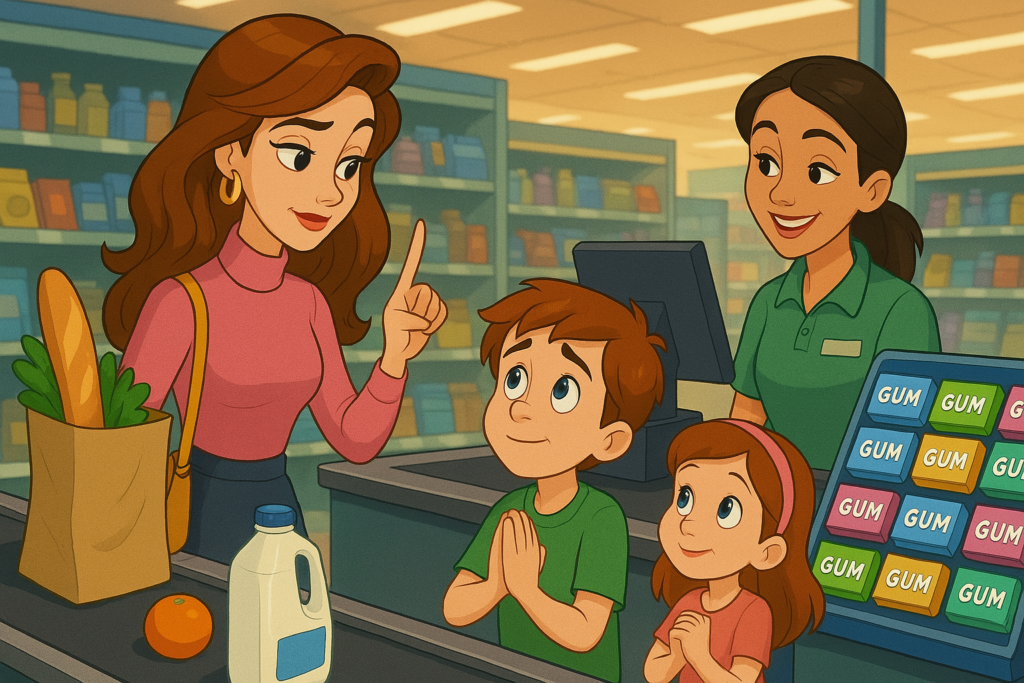
Standing in a grocery store checkout line yesterday, I witnessed a scene familiar to any parent.
“Mom, can we have gum?” asked a hopeful child.
“No,” replied the mother, continuing to unload her cart.
“Why not?” the child predictably countered.
What happened next was a schooling in persuasion:
“Because I’m the Mom, I have the money, and I just gave you a solid No.”
Complete silence followed. Battle over.
The magic word? “Because.”
In the landmark study on this phenomenon, Harvard psychologist Ellen Langer had researchers approach people waiting in line to make photocopies and ask to cut ahead. (How can you tell this study was done a few years ago?) They tested three different requests:
Request 1: “Excuse me, I have 5 pages. May I use the Xerox machine?” Result: 60% compliance
Request 2: “Excuse me, I have 5 pages. May I use the Xerox machine because I’m in a rush?” Result: 94% compliance
Request 3: “Excuse me, I have 5 pages. May I use the Xerox machine because I have to make copies?” Result: 93% compliance
That last result is the mind-blowing one.
The third request provided a completely meaningless reason — OF COURSE the person needs to make copies! That’s the only damn thing the machine can do. Everyone using it has the same objective.
Yet it performed just as well as the legitimate reason.
The word “because” triggers a near-automatic compliance response in our brains. It’s like a cognitive shortcut that signals: “A justification is coming, so you can stop questioning and just agree.”
This is why the most memorable product positioning statements often include a “because” clause, either explicitly or implicitly:
- Michelin: “Because so much is riding on your tires”
- L’Oréal: “Because You’re Worth It”
- Slack: “Because working together is better than working alone”
In I Need That, I talk about how the dog brain (emotional, impulsive) makes snap judgments without deep analysis. The word “because” is perfectly calibrated for this system — it provides JUST enough justification to satisfy our need for reasoning, without triggering the tank brain’s more critical analysis.
Product Payoff: Zappos went from a struggling startup to a billion-dollar company partly through their shipping policy: “Free shipping both ways, because ordering shoes online shouldn’t be a hassle.” This simple “because” statement differentiated Zappos from competitors who also offered free shipping, but without the clear justification. The statement resonated SO powerfully that it became their primary competitive advantage, even though others could (and eventually did) copy the policy itself.
Action for today: Now look at your key product messaging. Where could you add a clear “because” statement that links your offering to a customer need or pain point? Remember, the most powerful “becauses” aren’t usually tied to the product’s features — they are best when telling why those features matter to the customer’s life. Think about your product’s Coveted Condition.
Have you used the power of “because” yet in your product messaging? Tap that compelling little reply arrow and share your experience — because I’m genuinely curious about how this works for you.
And I ALWAYS write back.
Or reach out to my amazing team of product marketing specialists at Graphos Product.
